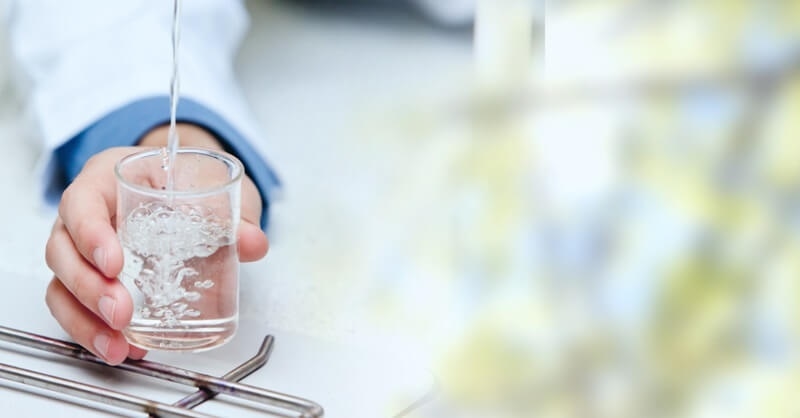
Most of us don’t sit around debating water purity over breakfast. I mean, unless you're a chemist, a fish tank enthusiast, or someone who once ruined a $500 espresso machine with tap water (guilty), DI water vs distilled probably isn’t topping your Google searches.
But if you’ve ever looked at two jugs of water—one labeled "distilled" and the other "deionized"—and wondered, Wait... aren't these basically the same thing? buckle up. This is where things get a little science-y, but in a good way.
Whether you're cleaning lab equipment, topping off a CPAP machine, or just want your skincare routine to feel a tad more high-tech, knowing the difference between distilled vs DI water might actually save you time, money, and a whole lot of confusion.
Here’s the story: I was trying to clean my DSLR lens with what I thought was super-pure water. Turns out I grabbed the wrong jug. Left behind streaks so obvious, you’d think a toddler licked it.
Lesson learned? Not all “pure” waters are created equal. And understanding DI vs distilled water can seriously impact everything from tech maintenance to skincare to science projects.
Let’s start with the basics.
Distilled water is made by boiling regular water, capturing the steam, and letting it condense back into a liquid. That steam leaves behind most minerals, bacteria, and impurities.
It’s like water’s version of a cleanse.
DI water, short for deionized water, goes through a different process. Instead of boiling, it’s passed through a special resin that pulls out ions—think minerals like calcium, magnesium, and iron.
It’s not distilled. It's filtered on a chemical level.

Ah, the million-dollar question.
Technically, DI water vs distilled water can be neck-and-neck when it comes to purity—but it depends on what you’re measuring.
So, in a lab setting, you might combine the two processes for ultra-pure results. For home use? It comes down to what you’re using it for.
If you're someone who’s ever wondered, “Can’t I just use tap water?”—no judgment. But for certain things, that decision can backfire big time.
Use distilled water for:
In all these cases, it’s not about being “fancy”—it’s about keeping stuff clean and functional.
Deionized water comes in clutch when you’re dealing with sensitive electronics or lab work.
Use DI water for:
Here’s the thing: DI water is like the introvert of the water world—low profile but incredibly precise.
Read More: What Is the pH of Distilled Water in 2025? Explained Simply
Sometimes? Not really.
Let’s say you’re watering your plants or topping off your car’s wiper fluid. Either one will work. But if you’re filling medical equipment or mixing up skincare formulas, the choice actually does matter.
So when people search “distilled vs di water,” what they’re really asking is: Which one is better for what I’m doing?
Quick cheat sheet:
Purpose
Okay, let’s tackle the elephant in the room.
You can technically drink both. But you probably wouldn’t want to.
If you’re stuck in a survival situation? Go distilled. But if you're sipping it daily hoping for “clean living”? Eh, you’re better off with filtered spring water.
One of the biggest things people notice in the di vs distilled water debate? The price tags.
Some households even install their own deionization filters for aquarium use or advanced cleaning. But for most folks? Distilled is the more accessible go-to.
If you’re a DIY-er, you can make distilled water at home. Boil water, catch the steam, cool it—voilà.
But DI water? That requires ion-exchange resins or a full filtration setup. Not something you whip up on a Sunday afternoon.
So if you're googling "how to make deionized water," just know—it’s a whole thing.
Here’s a fun list of where you might find DI or distilled water working behind the scenes:
Sometimes, the tiniest detail—like which water you use—can make or break the final result.
I was dealing with a random breakout that no cream could fix. After some late-night Reddit rabbit-holing, I swapped out tap water for DI water in my toner routine.
Within a week? Skin = calm, smooth, and way less cranky.
Turns out, trace minerals in my hard water were irritating my face all along. DI water wasn’t magic—it was just pure.
If you’re still stuck on the DI water vs distilled debate, here’s the real takeaway: it’s not a battle of which one is better. It’s about which one is better for what you need.
Think of them like tools in your cleaning or science-y toolbox.
When in doubt, go distilled for everyday stuff. But if your electronics, formulas, or delicate equipment are on the line? DI is worth the effort.
Read More: Water Distiller Reviews: Top Picks for Pure, Clean Water
Understanding DI water vs distilled isn’t just science trivia—it’s the secret to smarter skincare, cleaner tech, and better results in everything from humidifiers to home labs. Whether you're comparing distilled water vs DI water for convenience or breaking down DI vs distilled water for performance, the key is knowing which type fits your needs. One's steam-purified, the other's ion-filtered—but both have a place in your life (and under your sink).
This content was created by AI